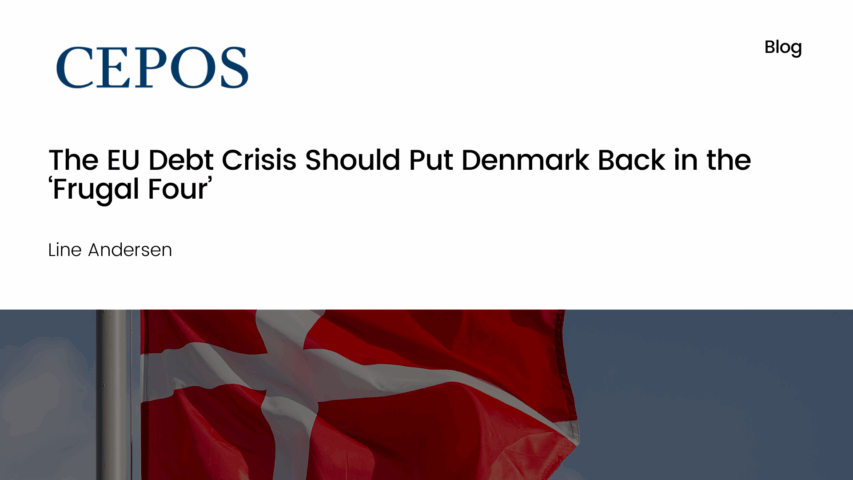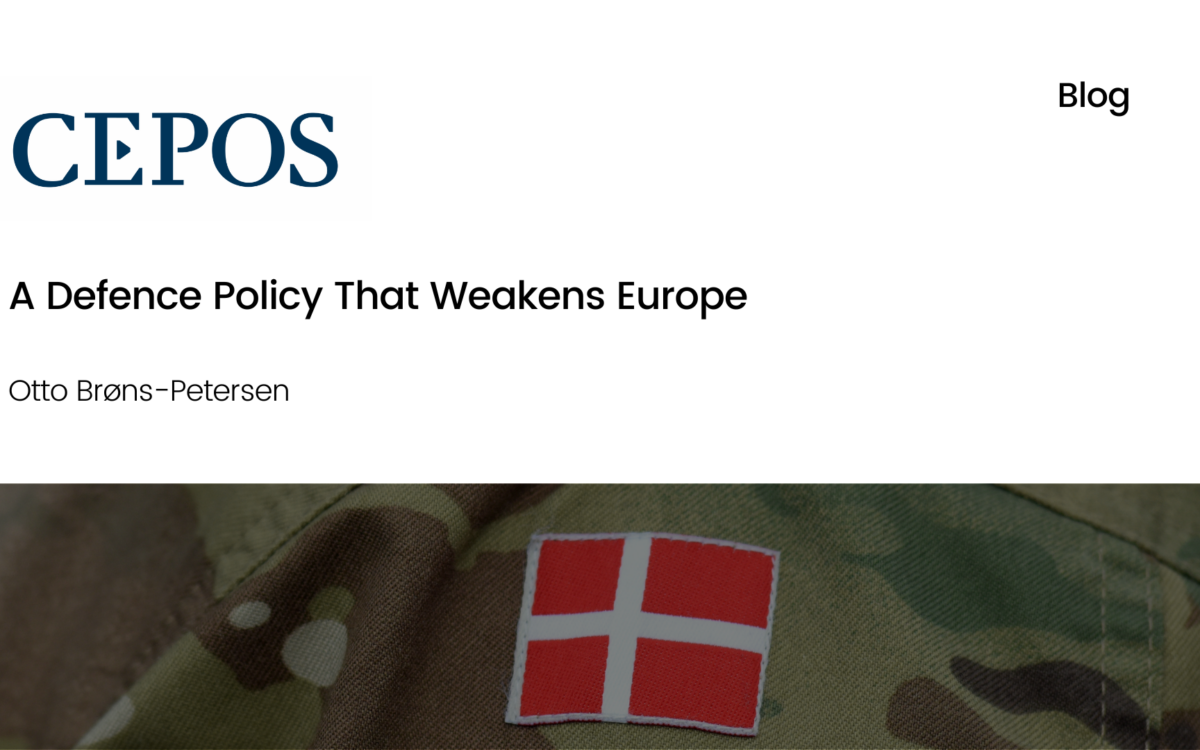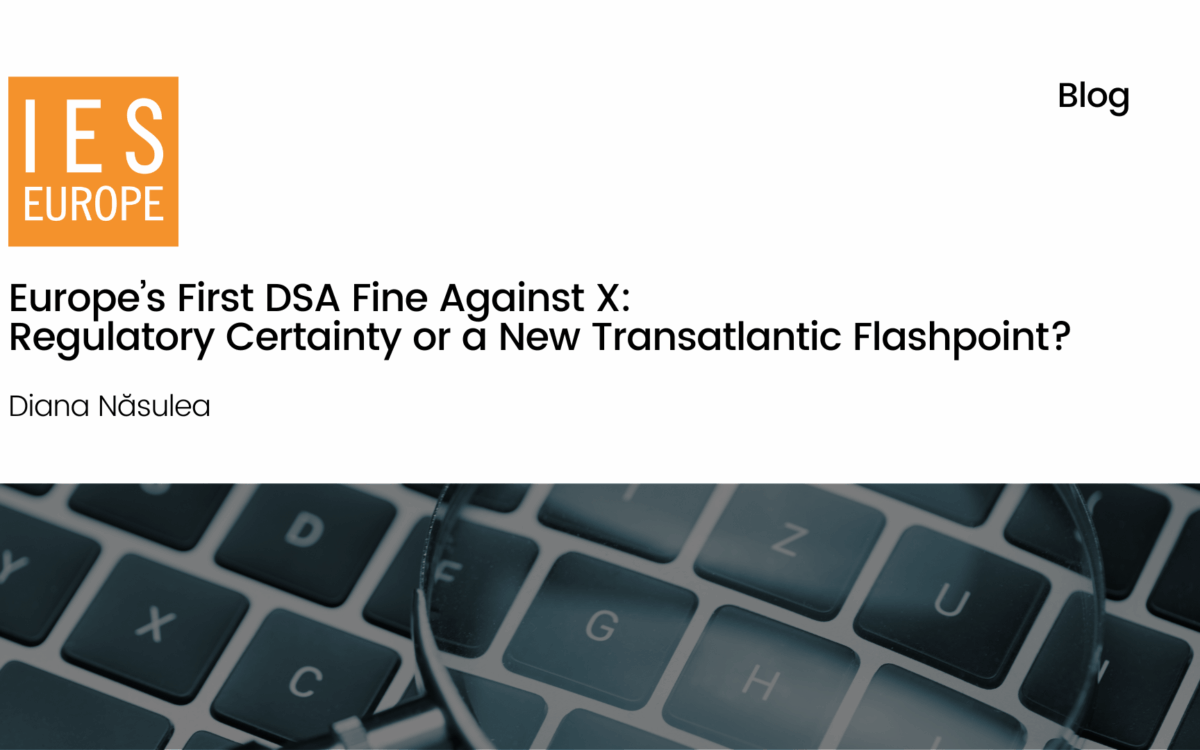The EU Debt Crisis Should Put Denmark Back in the ‘Frugal Four’

The EU Debt Crisis Should Put Denmark Back in the ‘Frugal Four’
Line Andersen // 16 July 2025
On July 1, 2025, Denmark took over the EU Presidency. This is a great opportunity for Danish politicians to lead by example in the EU and renew their membership of the ‘frugal four’.
Joint debt will likely be on the agenda in the coming period. The widely discussed Draghi report, for example, proposes joint debt to finance increased defence investments.
This is an idea that Danish Prime Minister Mette Frederiksen is not averse to. While a stronger defence is likely sound policy, Danish participation in joint EU debt is a risky path.
In Denmark, we keep our fiscal house in order. Public debt is relatively low, thanks largely to the Budget Act, which caps public spending. This means that current generations do not burden future generations with large debt repayments.
Not every EU country is equally disciplined. CEPOS recently published an analysis of the EU's growing debt problem.
The analysis shows that in 2023, 13 of the 27 member states exceeded the EU debt ceiling of 60% of GDP. And this is not a temporary phenomenon: since 2000, the average debt ratio has increased from 66.6% to 80.8% in 2023.
And that's not even including the joint EU debt taken on in 2020, equivalent to 5.5% of the EU GDP.
The increase in the debt ratio is mainly due to the fact that the deficit limit of 3% of GDP has not been respected and enforced. And at times, it has been suspended altogether.
As a result, many EU countries have prioritised taking on debt rather than implementing difficult reforms that strengthen their economies.
On the one hand, a strong economy lets a country borrow at relatively low interest rates. Countries with weaker public finances, on the other hand, must pay more, as the loan is associated with greater uncertainty.
When the EU issues joint debt, countries such as Denmark therefore subsidise cheaper loans for countries like Italy, whose debt ratio is almost 135% of GDP.
Danish taxpayers will therefore be paying a risk premium since some EU countries have not taken responsibility and implemented reforms like Denmark.
Beyond this indirect redistribution, there is also the obvious risk that countries like Denmark will be liable for other countries' debt if they cannot meet their obligations.
In addition, joint debt can lead to increased centralisation of power in the EU, and there is a risk that a debt crisis could turn into a banking crisis.
Fortunately, there are alternatives to joint debt. If politicians want to raise public spending in certain areas, they should do so by reprioritising the budget and pursuing growth-enhancing reforms. That would be due diligence.
Denmark should therefore renew its membership in the ‘frugal four’ and refrain from participating in joint debt. Likewise, we should back other member states that wish to do the same.
If Denmark participates in joint debt, the otherwise healthy Danish economy risks becoming sick.
This is a translation of 'EU’s gældskrise bør få Danmark tilbage i sparebanden'. You can read the original version by clicking here.
Line Andersen is an Economist at CEPOS.
EPICENTER publications and contributions from our member think tanks are designed to promote the discussion of economic issues and the role of markets in solving economic and social problems. As with all EPICENTER publications, the views expressed here are those of the author and not EPICENTER or its member think tanks (which have no corporate view).



